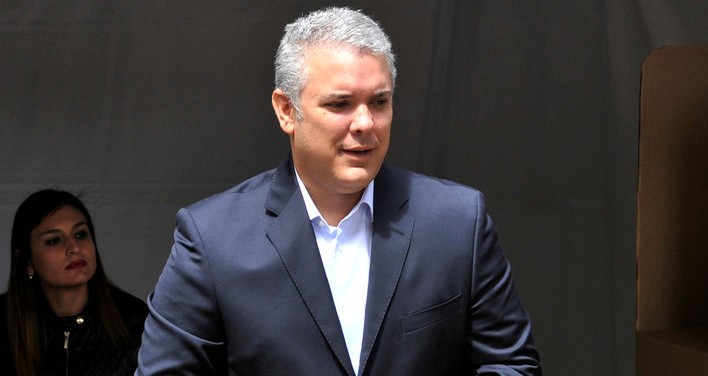Colombia leaves UNASUR
August 29, 2018 | Expert Insights

The Colombian president has announced his country's withdrawal from UNASUR, an organization set up by the late Venezuelan leader Hugo Chavez in 2008 to counter US influence.
Background
Colombia is situated in the northwest of South America, with territories in Central America. Colombia shares a border to the northwest with Panama, to the east with Venezuela and Brazil and to the south with Ecuador and Peru. It shares its maritime limits with Costa Rica, Nicaragua, Honduras, Jamaica, Haiti and the Dominican Republic.
It is a unitary, constitutional republic comprising thirty-two departments. It has a population of 49 million people who live in a multi-ethnic and diverse society. Colombia was engaged in a violent armed struggle with FARC for 54 years, which ended with the peace deal signed in early 2017.
UNASUR (The Union of South American Nations) is an intergovernmental regional organization comprising twelve South American countries. UNASUR’s Constitutive treaty was signed in 2008 and it came into force in 2011. UNASUR was formed with the intent of becoming a permanent bureaucratic body for a supranational union, which will eventually replace the political bodies of Mercosur and CAN.
The recent migrant crisis in Venezuela has become worse over the course of the past year. Colombia, Venezuela’s neighbour, has been impacted by an influx of migrants and has decided to leave the UNASUR, blaming the organisation’s inaction over the migrant crisis.
Analysis
Colombian President Ivan Duque on Monday said the Andean nation will withdraw from UNASUR, a South American bloc set up a decade ago to counter U.S. sway in the region, in a move that will be completed in six months.
Announcing Colombia's withdrawal on Monday, Duque claimed that the bloc of nations had failed to address a political crisis in Venezuela, which has been rocked by a wave of anti-government protests.
Echoing the rhetoric of the US White House, Duque has labelled the Maduro government a "dictatorship"; he has also called the UNASUR Maduro's "greatest accomplice."
Colombia became the first and, so far, the only one of the organization's 12 members to formally leave UNASUR.
In April, six countries –Argentina, Brazil, Chile, Colombia, Paraguay and Peru– suspended their membership for a period of one year, citing differences over choosing the group's secretary general.
Venezuela, Ecuador as well as Guyana, Suriname and Uruguay continue to remain full members of the bloc.
Chavez and other leaders at the time opposed the U.S.-backed proposal for a Free Trade Area of the Americas and instead set up UNASUR to join South American nations in an economic and political union.
The initiative was also an attempt to bypass the Washington-based Organization of the American States, which leftists considered a tool for promoting U.S. policy in Latin America.
Counterpoint
It is unlikely that Colombia’s withdrawal will lead to an immediate collapse of the UNASUR. With its existing membership, UNASUR looks to be fragile but its political and economic importance will ensure its survival as a regional bloc.
UNASUR is an integral step in the regional integration of South America. Mercosur is now a trading and customs union, which works under the UNASUR framework. Despite its repeated criticisms, UNASUR is tied to the trading and customs union of the continent.
Assessment
Our assessment is that Colombia’s decision to leave the UNASUR will have an impact on the regional stability of Latin America. We feel that Colombia’s departure will encourage other suspended members to seriously consider their respective withdrawals. However, we also feel that UNASUR should be spearheading the relief operations for its member nations who host Venezuelan migrants.








Comments